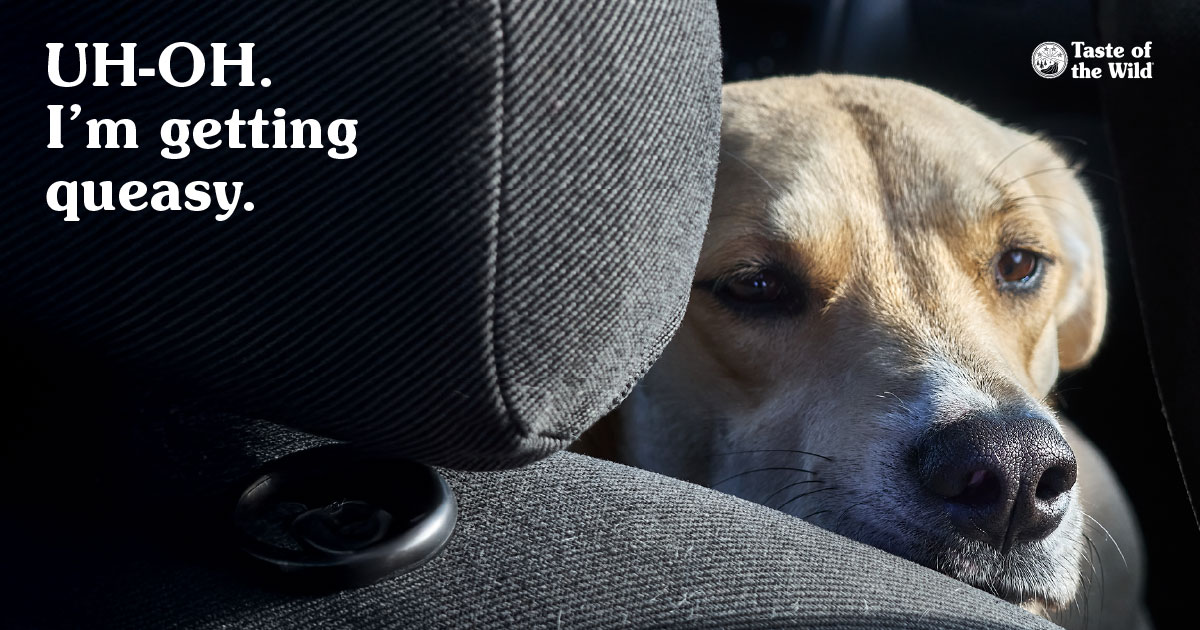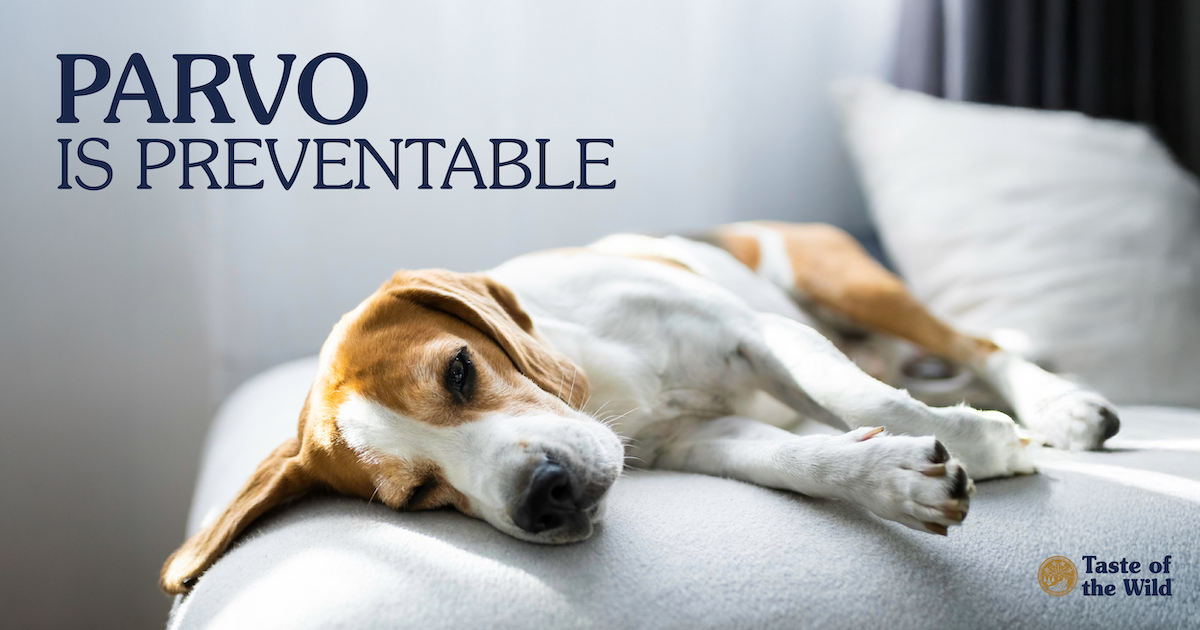Dog Car Sickness: Signs, Symptoms & Prevention
Category: Health

Whether you’re exploring the back roads or hitting the open highway, road-tripping with your dog can be a fun adventure for both of you — unless your dog gets sick. Motion sickness leaves your dog feeling terrible and you with a big mess to clean up. So we’ve got some tips for helping your dog enjoy (or at least tolerate) car rides.
Can Dogs Get Carsick?
Yes, dogs can get an upset stomach during car travel. Motion sickness is more common in puppies, possibly because the part of their inner ear responsible for balance hasn’t fully developed yet. Puppies usually outgrow motion sickness, but some adult dogs can still experience it. Motion sickness can range from nausea to severe vomiting.
Dog Nausea from Car Rides Can Be Stress-Related
A dog’s motion sickness can also be due to the car itself and feeling anxious or stressed about it. Car-related anxiety might be due to a previous unpleasant experience or because the only time they go for a car ride is for not-so-fun trips like visiting the veterinary clinic. As awesome as your veterinary team may be, it’s still a strange place full of weird smells and noises. It can be helpful to take your dog on short trips to fun places so that they don’t associate car travel with stressful experiences. For example, take your dog to the veterinary clinic when your dog doesn’t have an appointment — say hi, get some pets, maybe a treat and then home again.
Signs of Nausea in Dogs
It’s good to know the symptoms of nausea. That way you can stop the car and get your dog out into fresh air, hopefully before any vomiting mishaps. Here are some signs of nausea to look for:
- Excessive drooling
- Lip smacking or lip licking
- Lethargy
- Whining
- Yawning
Conditioning Your Dog to Car Rides
If you believe your dog’s nausea is related to stress or anxiety from the car ride, you can try conditioning them to the car. It’s a good idea to start conditioning puppies to the car as soon as they are brought home, otherwise a bad experience as a pup may result in permanent travel anxiety.
To condition your dog, start by placing them in the vehicle and sit in there with them. Have the engine running and make sure the air conditioning or heater is on to keep the car at a comfortable temperature. Reward and praise their good behavior and, after a few minutes, leave the car. After your dog is doing well with this, try taking them on short drives (like around the block) then gradually extend the length of the trip.
It may take several trips for them to feel more comfortable. It’s important to remain positive during the conditioning process — you want your dog to continue to associate the car with a positive experience. You could also give them a toy that they only get when they’re in the car. If they seem stressed or anxious, stop and try again another day.
What Can I Give My Dog for Nausea?
To help prevent motion sickness, you can try positioning your dog with a doggie seat belt so that they can look out the windshield, not the side or back windows (it’s recommended to avoid the front seat as airbags can be dangerous for dogs). Keeping them in a carrier or crate may also make them feel more secure and can help with cleaning up potential messes. Make sure the carrier is secured so it doesn’t slide around and has enough space for your dog to stand, turn around and lie down.
If your veterinarian approves, it can help to withhold food for a few hours before a car trip so that your dog has an empty stomach. Keeping the car cool and well ventilated can help, as can cracking the windows to let a little fresh air in. If you’re on a long road trip, it’s a good idea to stop regularly and let your dog take a walk in the fresh air, along with providing them water and frequent potty breaks. The fresh air will be good for you, too!
Motion Sickness Medicine for Dogs
If you think your dog could benefit from anti-anxiety or anti-nausea medication, ask your veterinarian before giving anything to your dog, including over-the-counter medication. Your vet will determine whether your dog’s motion sickness could be helped with prescription medications, or whether natural remedies or other products that treat nausea or anxiety may be useful.
Solo Road Trips May Be the Best Option
Your dog’s motion sickness can quickly put a damper on car trips. You can try conditioning your dog to make the car a less scary experience or ask your vet if medication could help. If your dog still isn’t a fan of the car, you may have to take those road trips by yourself and leave your canine buddy at home with a friend or pet sitter.
The information in this blog has been developed with our veterinarian and is designed to help educate pet parents. If you have questions or concerns about your pet’s health or nutrition, please talk with your veterinarian.




